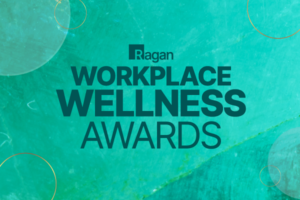Wellness Roundup: Job market trends, 4-day workweek data and more
A snapshot of research, news and data covering human resources, benefits and employee wellbeing.

Job market trends for 2023
A new jobs report from Joblist found that last year’s job market, which began with COVID-19 variants continuing to cause disruption, ended with strong job growth and employment levels in Q4 Looking at 2023, the main threats to employee retention are inflation and rising rates.
The survey asked 30,000 job seekers to share their thoughts about the job market at the end of 2022 and where it might be heading into 2023.
Here are some key insights from the report that HR leaders should know:
- More than half (52%) of job seekers believe they still have the upper hand over employers in the job market, even with news of layoffs at large organizations. Specifically, 78% of respondents believe switching jobs will lead to making more money over staying at their current organization.
- Although resignation numbers have declined, 67% of employed job seekers say they plan to quit this year, with 34% saying they would be okay with leaving their current position without a new one line up.
- Inflation is rising faster than pay. Fifty percent of job seekers are happy with their current pay. Though 53% received a raise last year, they tended to be small. The top reasons workers asked for a raise were inflation and cost-of-living increases (65%).
- The workforce is split on remote vs. in-person vs. hybrid work. Thirty-six percent of job seekers are looking for a fully remote role, while 44% want an in-person position, and 19% prefer a hybrid role. Almost half (49%) of Millennials would like a fully remote job, while Gen Z is more likely to seek in-person opportunities (57%). Forty-three percent of respondents currently working fully remote or a hybrid of remote and in-person say they would quit if asked to work in-person full-time in 2023.
- Employee burnout is still a problem for employers. Half of the respondents say they are currently burned out and are not optimistic about their employer solving the issue. These job seekers also indicated that their employer isn’t doing enough to minimize the issue (62%), while a lower number (52%) feel their employer doesn’t care about employee wellbeing. Playing into that issue are the 73% of respondents who don’t see any growth opportunities at their current organization. Side note: Remote workers have a slightly higher rate of burnout vs. in-person employees (55% vs. 48%).
What it means: Highlights from the report show that employees are feeling confident about landing a new job in 2023, should they choose to pursue one. That should be a concern for organizations and a sign that they must continue to look internally at potential issues like the culture, benefits and career growth opportunities to retain talent. Of the respondents who quit a job last year, the main reason given (39%) was due to bad management or a toxic workplace.
In the News: DOJ sues Activision Blizzard for suppressing esports player salaries
This week, the Department of Justice filed a civil antitrust lawsuit against one of the largest video game publishers in the world, Activision Blizzard. Activision has been in the news a lot lately with talk of cultural issues at the company and Microsoft currently trying to acquire it.
The complaint alleges that two esports leagues owned by Activision implemented a “competitive balance tax.” It claims this tax was structured to penalize teams if a player’s compensation exceeded a threshold set by the game publisher, and was a way to prevent teams with deeper pockets and better resources from retaining all the top talent by luring them with high salaries. Instead, it resulted in lower wages for all players.
According to the DOJ’s press release:
“Video games and esports are among the most popular and fastest growing forms of entertainment in the world today, and professional esports players — like all workers — deserve the benefits of competition for their services. Activision’s conduct prevented that from happening,” said Assistant Attorney General Jonathan Kanter of the DOJ’s Antitrust Division in the press release. “Today’s lawsuit makes clear that the Antitrust Division remains committed to protecting workers across all types of industries from anticompetitive conduct.”
The DOJ has already agreed to a settlement with Activision to resolve the lawsuit. Activision never enforced the tax on teams and already ended it in 2021 during the DOJ’s investigation.
What it means: What was meant to create an even playing field and stop a few teams from taking the best players and, presumably, most of the winnings, in turn, held everyone back. On top of that, the company with the power to fix the situation appeared to be unwilling to address the issue until its hand was forced.
Finding solutions to benefit employee wellbeing (and the organization in turn) is great, but being so focused on one issue can sometimes blind us to the ramifications of our decisions. It’s important to think about how a benefit or policy could have a ripple effect across the organization or industry. Organizations must own up to the mistake or bad decision and be open to course-correct if needed.
4-day work experiment results
There’s been a lot of talk lately about four-day workweeks, including a UK study conducted from June to December 2022 that saw 61 companies participate, covering almost 3,000 workers. A fresh report outlining the results of the UK pilot study from independent research organization Autonomy indicates that the pilot was a great success, as 56 of the original 61 organizations are continuing to explore the four-day workweek study, and 18 have made it a permanent policy change.
These numbers may explain the continued pursuit of a shorter workweek. After the six-month test, 39% of employees felt less stressed, while 71% had reduced levels of burnout. When it came to family and social commitments, over half (54%) of employees felt their work-life balance improved and were generally more satisfied with their finances, relationships and time management.
For organizations participating, employee resignations dropped 57% during the trial period. Additionally, revenue by an average of 1.4% for the organizations that reported their 2021 and 2022 numbers. These companies also reported a reduction in people quitting from 2 to 0.8 per 100 employees, along with a decline in absenteeism from 2 to 0.7 days per employee per month.
For the most part, employees liked the change. For instance, families were able to save on childcare, and employees reported a reduction in fatigue (46%), sleep difficulties (40%), anxiety and negative emotions (54%), with improvements in mental and physical wellbeing (37%).
What it means: The study suggests that moving to a four-day workweek and giving employees more time off doesn’t have adverse impacts on business and can positively affect employees. Happy employees tend to stick around longer. In the end, 96% of employees definitely wanted to continue or somewhat wanted to continue a four-day workweek and for them, it might be hard to go back. The report states that if asked to make a tradeoff between working time and pay, 70% of employees said they would require a salary increase of between 10-50% to return to a full, five-day schedule.
Jon Minnick a conference and award show producer at Ragan and spends his days with his feline office co-worker Jane who just wants to be part of whatever is going on.







